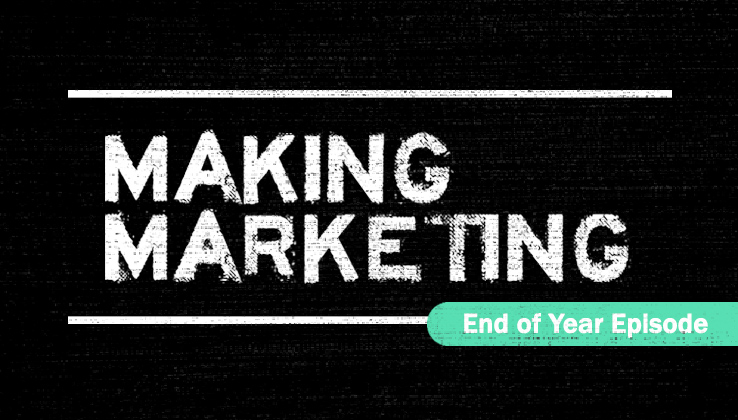Save 50% on a 3-month Digiday+ membership. Ends Dec 5.
Marketing drives the business again and agencies consolidate: The best of Making Marketing podcast in 2018

Subscribe: iTunes | Google Play | Stitcher | RSS | Anchor
On this episode of the Making Marketing by Digiday, we recap the big themes that emerged for marketers this year, from agency consolidation to marketing evolving as a driver of business. Excerpts appear below:
Brands want to be more and do more.
“You go to strategy meetings and they used to be about ‘we’re going to launch this product in this quarter and this product in next quarter,’” said Vimla Black Gupta, CMO at Equinox. “Well now it’s about ‘what’s the experience that you’re going to provide for this consumer, so he or she can realize this fundamentally beautiful lifestyle,’ because that’s what, at the end of the day, is really going to dictate your beauty. So the merging of beauty and wellness has fundamentally changed companies, but, quite frankly, it’s also created seismic opportunity.”
“[It’s] challenging to stay current with everything going on in the landscape. You can’t be reactive; you need to be trying and testing out new things,” said Jennifer Breithaupt. “We’ve been thinking about making sure we do something first. We want to do at least one thing first in six months. [We want to] make everything contextually more relevant. For example, using AI to think about how we’re showing up, where we’re showing and be more relevant.”
Agencies need to reinvent to be relevant again.
“I think the biggest concern for the holding company model, and agencies in general, is fixing themselves,” said Nick Law, CCO at Publicis. “I think the competitive set will take work from the industry, but it won’t take all the work. The sort of work it takes will depend a lot on how the holding companies, and the industry, reinvents itself.”
“What’s problematic with our industry is not only do they not move into the new things, but they move off of things to more shiny objects before it’s time to do that,” said Bob Greenberg, chairman and CEO of R/GA. “And they’re not really great at taking chances, so what happens is they rely on being quite good at talking the talk without walking it. Some people don’t realize that our business, when you go back to the Mad Men era, is about the art of persuasion. So you can talk the talk better than anybody else, and the clients have to look past many levels to see what their work is really like, and they’re doing that. That’s what is creating a lot of the deconstruction.”
Ad position: web_incontent_pos1
“There’s a clear collection of agencies that work together that have efficiencies and can create integration,” said Jon Cook, global CEO at VMLY&R.“This merger [of VML and Y&R] is an example of it. We’re seeing a renaissance of the brand names that make up the integration. Integration is happening and it needs to happen more. There is a demand for integration but they don’t want faceless and nameless integration. Brands matter. Clients respect that we have our own. Brands are not worrying, selfish tribe. A brand is having an expectation of who they are and how they operate. There’s nothing wrong with that.”
More in Marketing

Ulta, Best Buy and Adidas dominate AI holiday shopping mentions
The brands that are seeing the biggest boost from this shift in consumer behavior are some of the biggest retailers.

U.K. retailer Boots leads brand efforts to invest in ad creative’s data layer
For media dollars to make an impact, brands need ad creative that actually hits. More CMOs are investing in pre- and post-flight measurement.
Ad position: web_bfu



